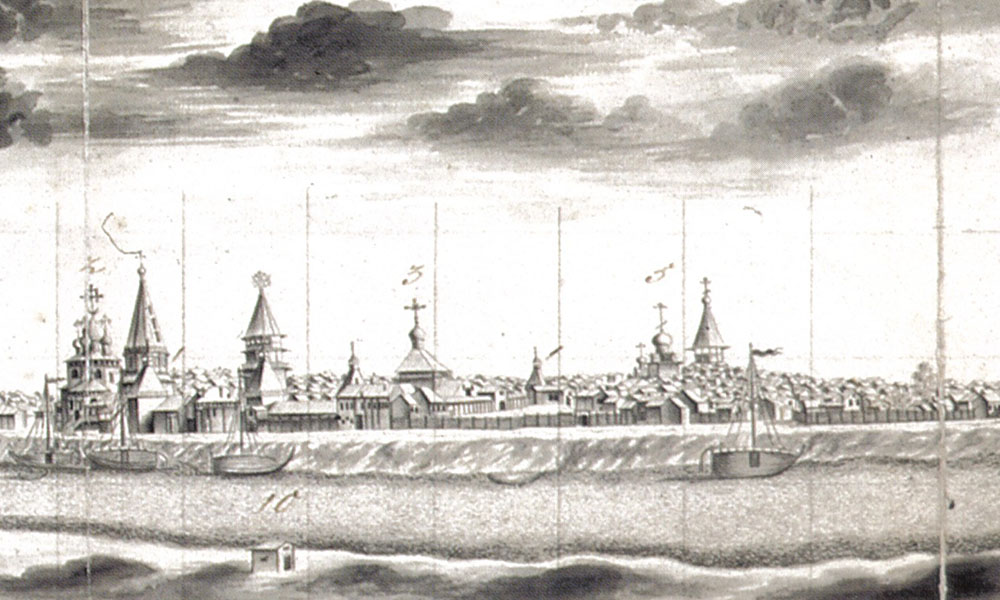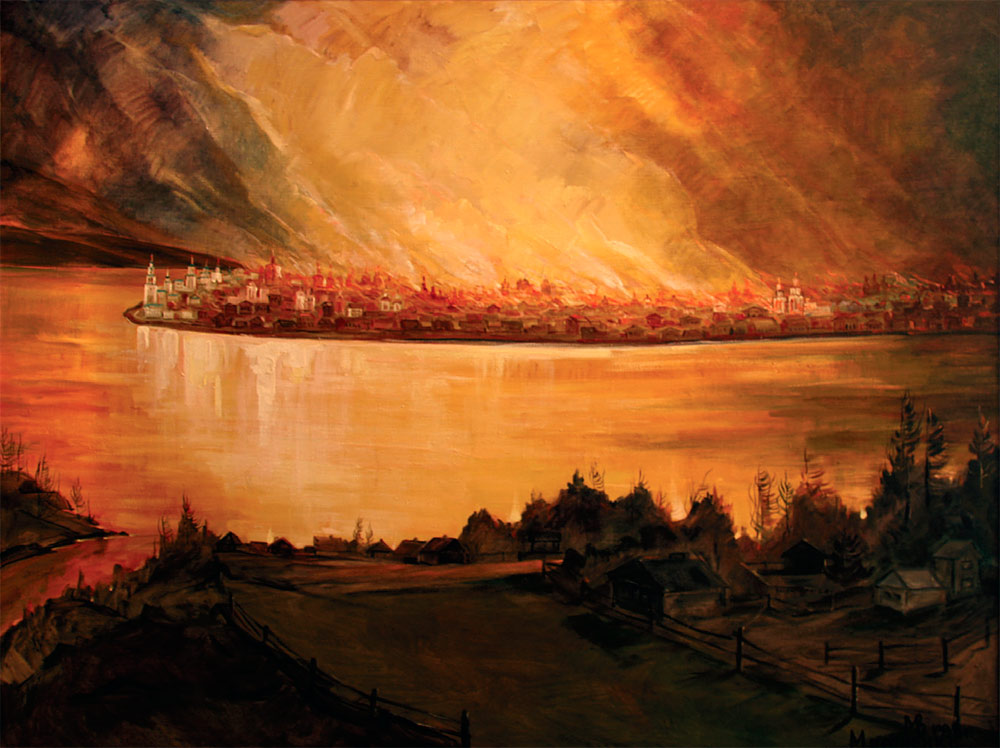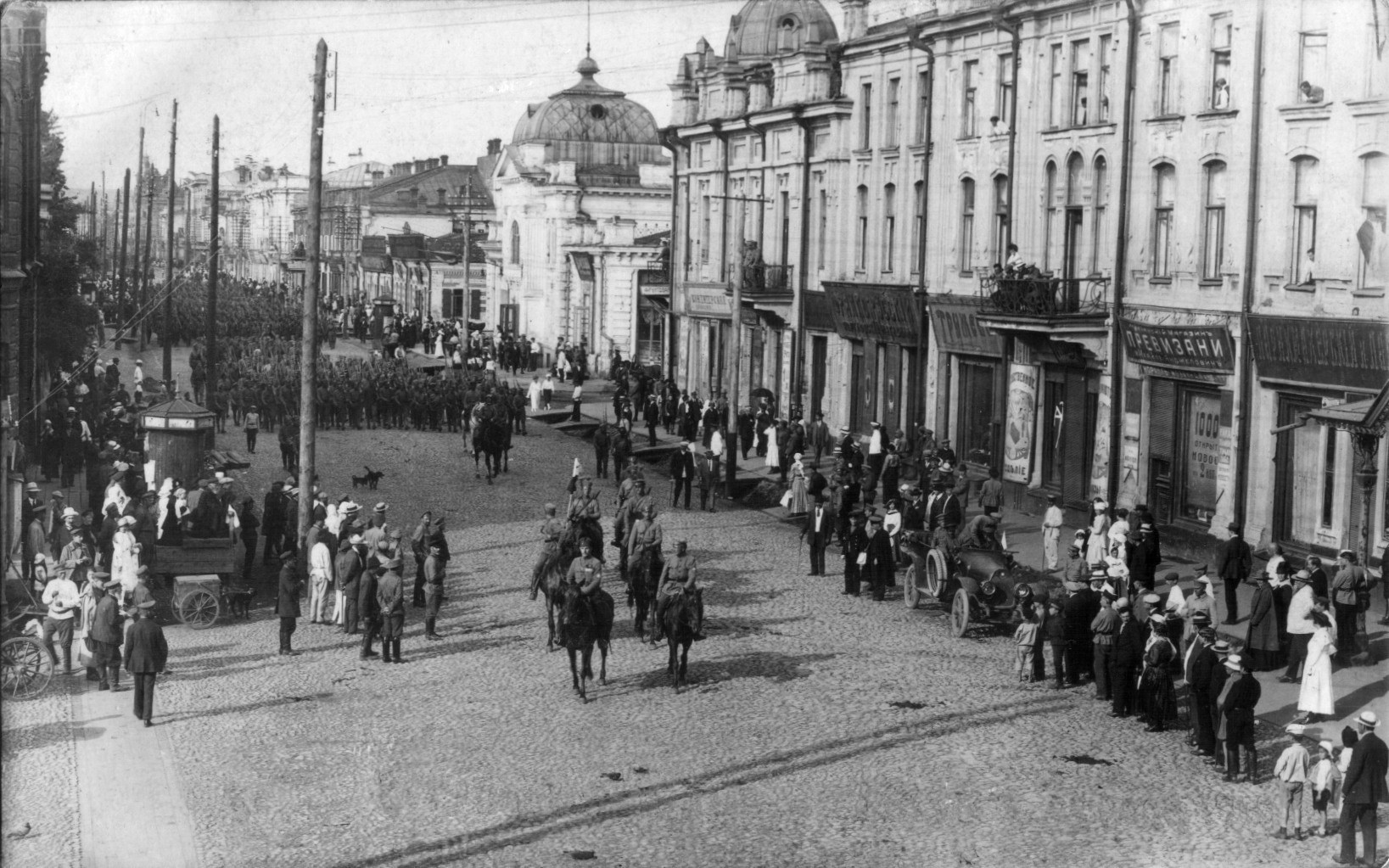History of Irkutsk
17th Century
Irkutsk Kremlin

The first Russian settlement in what is now the city of Irkutsk came in 1661 when the Russian pioneer Yakov Pokhabov founded a wooden fort (ostrog) on the right bank of the River Angara opposite the mouth of the River Irkut. The fort was named Irkutsk after the river. Several years later, in 1669, the fort was demolished and a wooden fortress was erected in its place which became known as the Irkutsk Kremlin. In 1686 Irkutsk was awarded city status and in 1693 the kremlin was extended.
18th Century
Merchant City
At the beginning of the 18th century the first stone buildings appeared in Irkutsk, firstly a government office (prikaznaya izba) and then the Saviour Church in 1710. A fire in 1716 destroyed many wooden building in the city including the wooden kremlin which was quickly rebuilt. In 1724 the city became the centre of the Irkutsk Province of the Siberian Governorate. Later, in 1764, it became the centre of the Irkutsk Governorate. Around this time the city had become a major centre for trade and the merchant class in the city grew rich through providing the state with furs, provisions and metal and through Russian trade with China. The new wealth in the city led to the appearance of new churches, schools, theatres and libraries in Irkutsk.
19th Century
Decembrists in Irkutsk
In 1825 a group of officers and noblemen who became known as the Decembrists staged an unsuccessful rebellion in St Petersburg against the autocracy of the tsar. As a result many participants were exiled to Siberia and the first group of Decembrists arrived in Irkutsk in 1826 on route to a hard labour camp. After completing their sentence of hard-labour, Decembrists leaders Prince Sergey Trubetskoy and Prince Sergey Volkonsky were allowed to settle in Irkutsk and were joined by their wives who famously followed them into exile in Siberia.
Great Fire of Irkutsk

In 1879 practically the whole of the historical centre of Irkutsk was destroyed in a fire so great that people subsequently talked about history "before the fire" or "after the fire". What survived of the wooden Irkutsk Kremlin was subsequently fully demolished at the end of the century, when large-scale rebuilding work took place in the city. In 1898 the first train arrived in Irkutsk via the newly-completed Trans-Siberian Railway.
20th Century
Russian Civil War

The wealth brought into Irkutsk through trade was not shared by all and the division between rich and poor was clearly visible by the 20th century. This led to strikes in 1903 and 1905. Soviet power was established in Irkutsk in December 1917 after a bloody battle, but in July 1918 the city was captured by the Czechoslovak Legion and it became part of the Provisional Siberian Government. Admiral Aleksandr Kolchak, a prominent leader of the White forces, arrived in Irkutsk in 1919, but was arrested by the left-wing group, including Socialist Revolutionaries and Mensheviks, who had set up what is known as the Political Centre in Irkutsk. He was handed over to the Bolsheviks when they regained control of Irkutsk in 1920, and was subsequently executed by firing squad. A month later the Red Army entered Irkutsk and Soviet power was firmly established in the city.
Industrialisation
Up to 20,000 citizens of Irkutsk went to fight on the front during the Second World War and only around half of them returned. Various factories were also evacuated to Irkutsk from the western areas of the USSR. Following the end of the war, Irkutsk's industry was further developed with the opening of the Irkutskaya Hydro-Electric Station in 1958. By the 1990s the city was a major industrial centre of Russia. Today the city remains an industrial centre, but it has also become a tourist centre due to the fact that many people come here to visit the nearby Lake Baikal.


 History
History